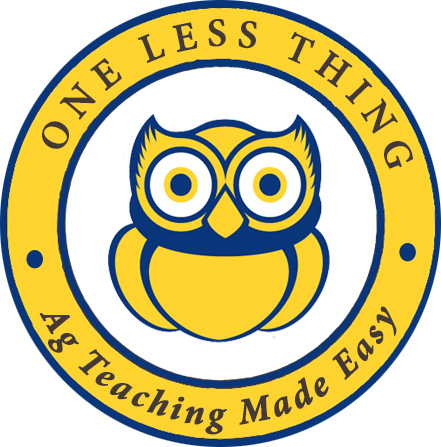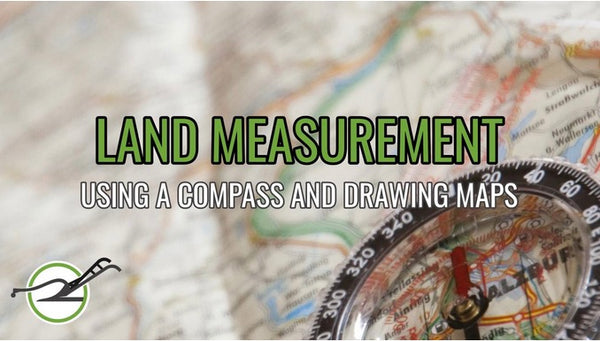How to Get the Most Out of Your CDE Practices

We’ve all seen those Ag teachers. The ones that seem to have it all together. That don’t look stressed at a contest. The ones whose chapter name is ALWAYS getting called out on stage. Blue and Gold might be our official colors, but many of us wear a nice shade of Envy Green at awards time.
Do you want to master one CDE and make a bid for the trip to Indy? Or do you just want make sure your kids have a positive experience at the contest and come out eager for more? Either way, the process is the same. Some Ag teachers just have it figured out (although they will tell you “I just have good kids”). What you need is a strategy, a plan of action, a process that will keep you from wondering if all the time and energy made a difference. To have a successful CDE team, you need to focus your practice time to be the most effective.
Prioritize CDE ComponentsWhether you’ve done this contest ever since you were in high school or are trying it out for the first time this year, you need to study the CDE/LDE Handbook or the Awards Bulletin for your state. Really study it. Take a highlighter and pen to it. Most of all, what you need to know is how to get the most bang for your buck. In other words, what components count for the most points.
CDE components aren’t all equally weighted. If the identification portion has the biggest percentage of points, start there. If Problem Solving can swing the final score into the top percentage, then study on how to do that. Spending time on the parts of the contest that earn your students the most points will catapult your team from “somewhere on the spreadsheet” to receiving a plaque on stage.
Collect a Variety of Study MaterialsIf you only ever use one slideshow or one booklet or one resource of anything, then your students will memorize the pictures instead of learning the material. This doesn’t mean you have to spend a lot of money. There are more and more review materials online these days. Also, don’t try to do it all yourself. Instead your students can develop them. Assign parts of the contest to members of your team and have each one put together summaries and review materials for their section. Then when they present them to their teammates, not only will you have saved time, but they will also understand it much better themselves.
Ask other Ag teachers what they use and if they are willing to share. You might be surprised at the answers. They may not handover their entire filing cabinet of old tests, but many veteran Ag teachers will tell you what they prefer as reference materials or CDE resources. Look at the list of “official resources” in the CDE/LDE Handbook or Awards Bulletin. If your students are studying for a test, make sure they are studying the correct resource. You can often borrow resources too. Talk to your state staff that put on the CDEs and ask what they recommend as well.
Set Up Mock ContestsAs soon as your students have a basic understanding of a section, begin having mock contests. They don’t need to master everything before you test them on it. By making practice classes and practice tests, you will discover where their pain points are, what is causing confusion, and where they need to focus. Best of all, it will stimulate questions and discussion points that will increase their understanding. A practice CDE also puts a little pressure on the team and gives them the "Oh, this is the real deal." feeling.
Mock contests don’t need to be fancy. I knew an Ag teacher that made drawings of “stick chickens” for placing classes and was very successful. The important point is that students know what to look for AND what to expect. For example, if they have never had to look at a class while juggling a clipboard and scratch paper, then that will be a source of stress when they get to the contest. You can also have students create practice contests for each other instead of doing it all yourself (as usual). Once again, they will learn more by teaching others.
Get together with other chapters nearby. When we were new to the Ag Sales CDE, I collaborated with chapters in two neighboring counties that were also trying it for the first time. One afternoon, they came to my Ag building with their teams and we ran a mock contest. It was an excellent learning experience. Our kids got to do a dry run of presenting and selling. We were able to pool our resources. And getting feedback from teachers other than myself was extremely beneficial for my kids. Putting our heads together, we were able to work out parts of the contest that each of us had interpreted differently. Plus our students didn’t feel so nervous knowing that other teams were in the “figuring it out stage” too.
Chances are you are preparing at least three CDE teams a season on top of SAE visits and working with your officers and committees. Utilize your practice time to the fullest by focusing on the parts of the contest that score the highest, gathering a variety of materials, and setting up mock contests whenever possible. Stick to these three concepts and you will see results.



